For this week’s critical play, I played “We’re Just Friends”, which is an unofficial online version of the game “We’re Not Really Strangers”. This online version did not have any information about who had created it or when it was published, but the original “We’re Not Really Strangers” was created in 2018 by Koreen, a model and artist based in Los Angeles. The game started off as an Instagram account that probed deep questions before becoming a card-based game that has multiple expansion packs, which the online version mimics very well. The target audience for this game are adults who are focused on developing meaningful connections, either with others or within themselves. There are many different connections that can be encouraged, which are all targeted by the different expansion pack options (friendship, couples, self-reflection, honest dating, family, etc.).
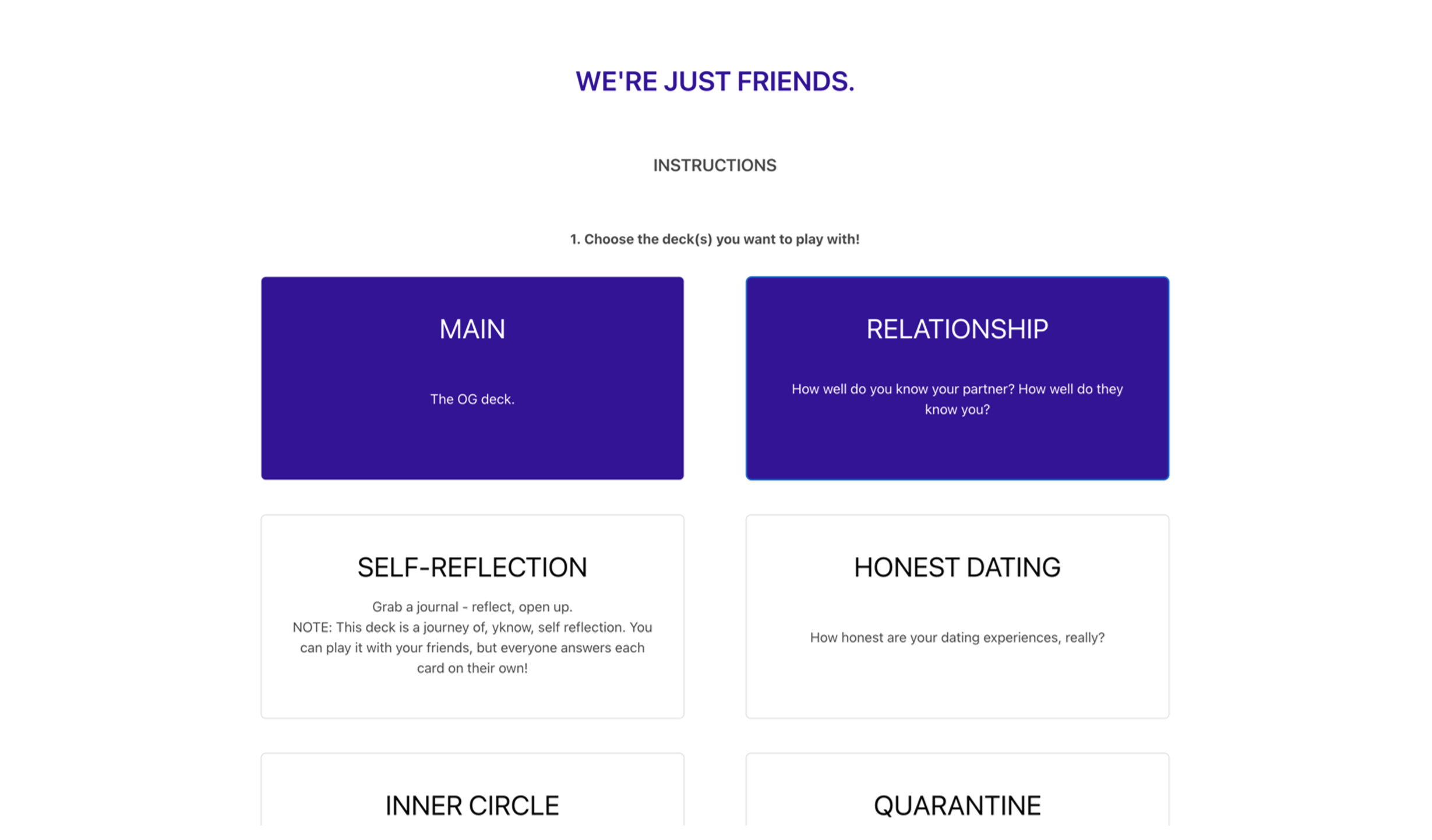
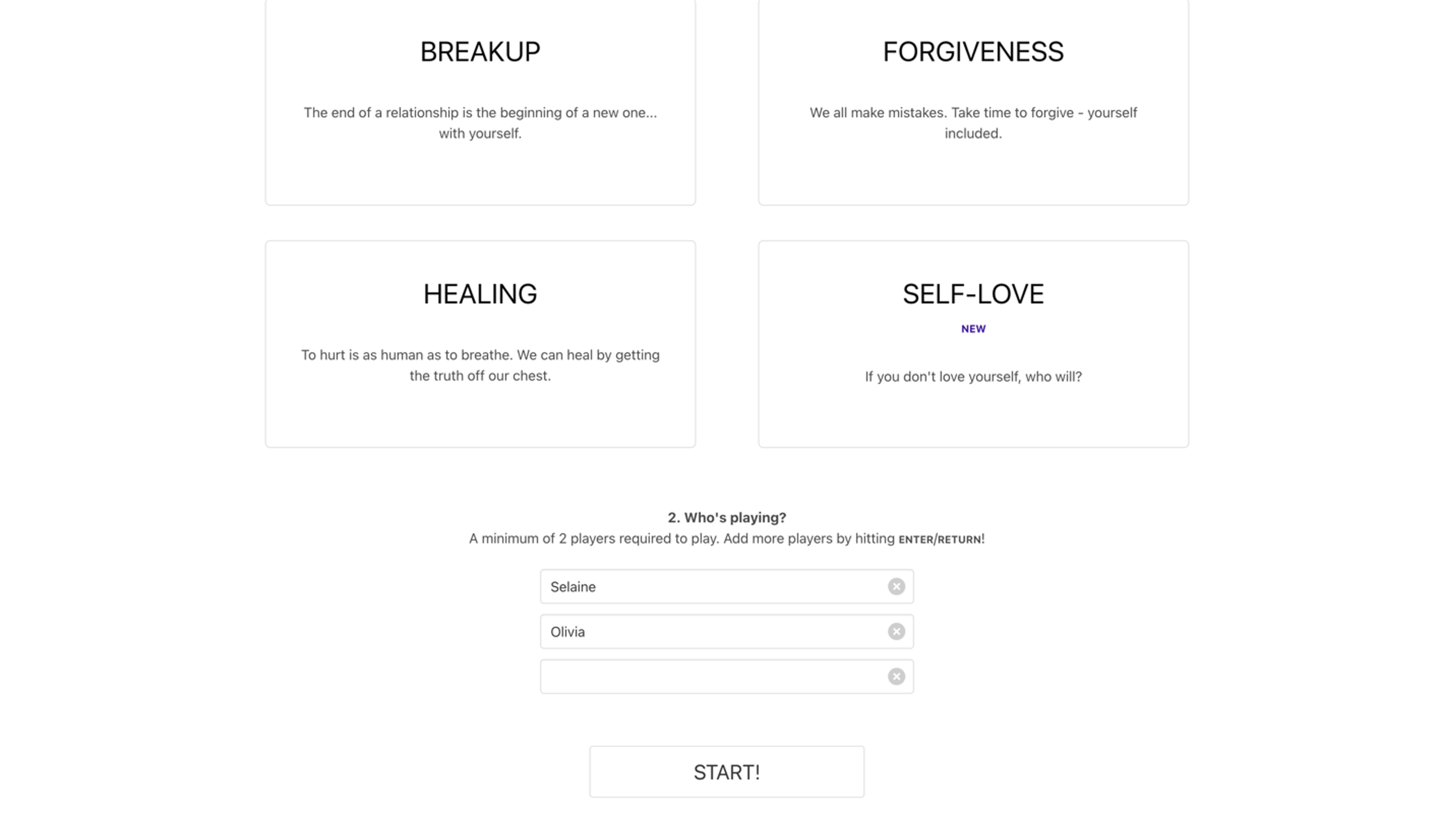
These were the formal elements of the “We’re Just Friends” version of the game (https://werejustfriends.online/):
- Players: This version of the game required a minimum of two players, but it seems that you could add as many as you’d like. The game would then alternate between all of the existing players and assign prompts to the different people in the game.
- Actions: Players have two types of cards, the standard question cards and the wildcard questions. The players simply alternate between pulling and responding to these two types of cards.
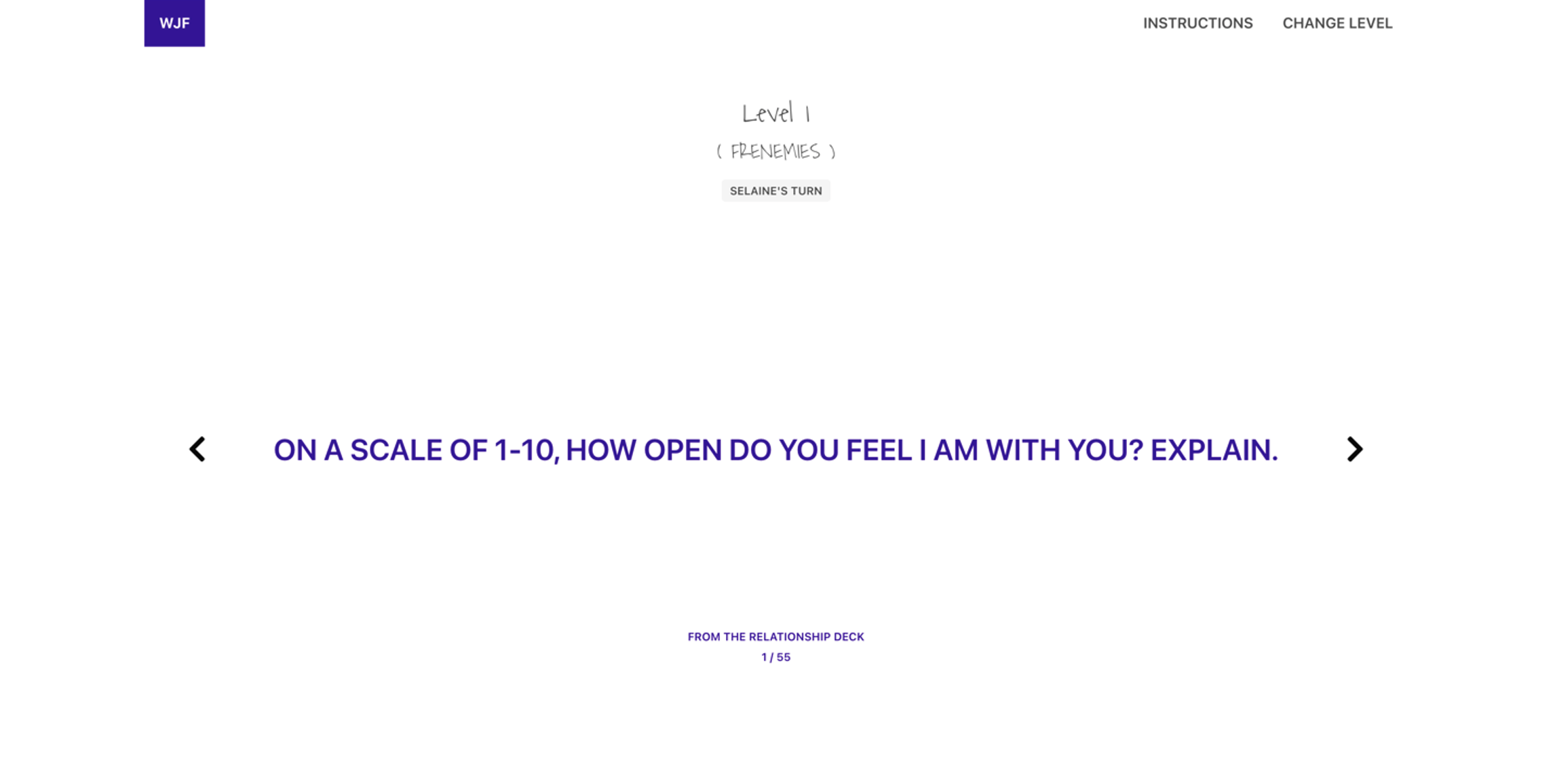
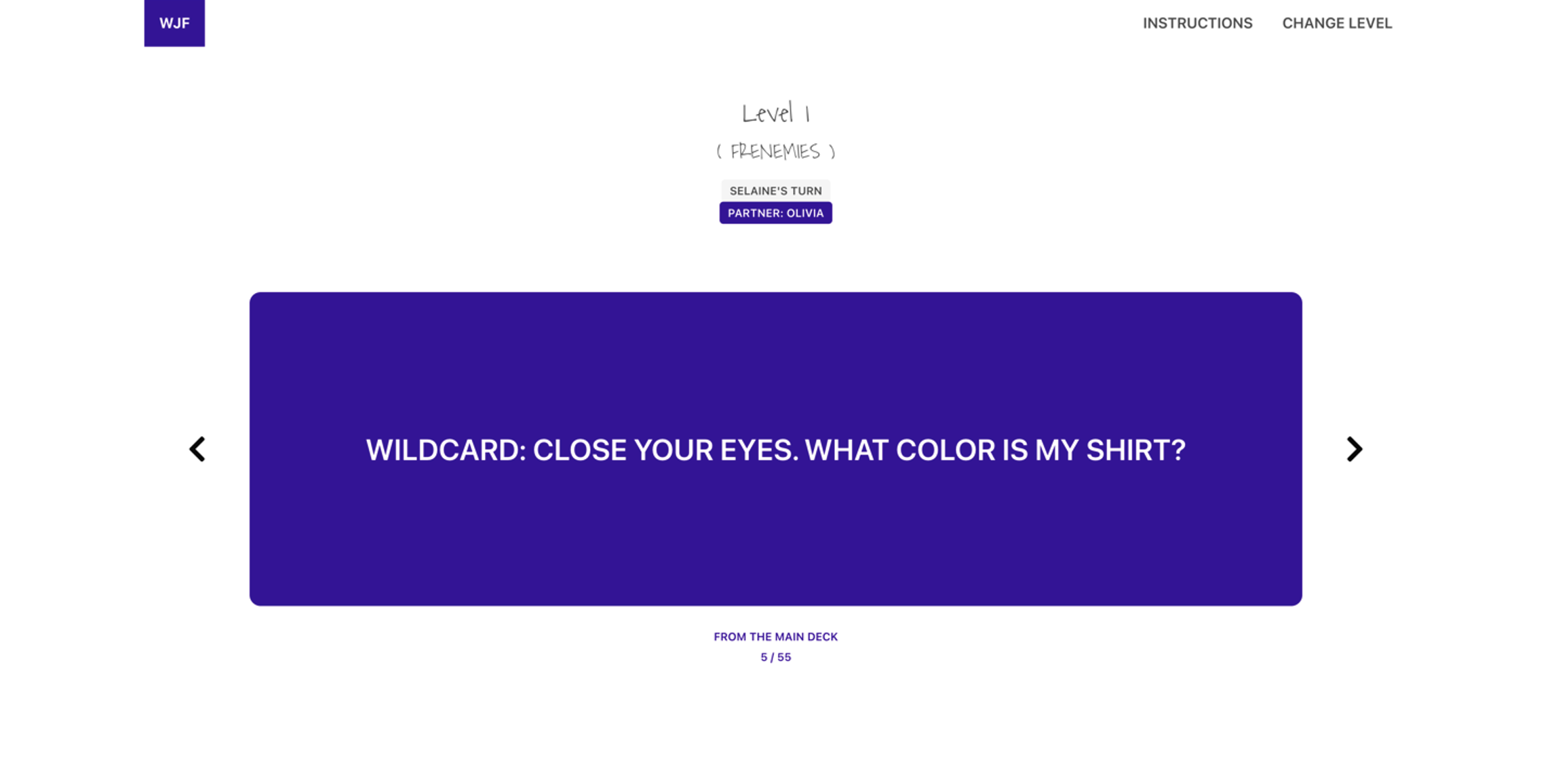
- Rounds: There are three different levels, which are Frenemies, Close Friends, and BFFs. Within each round, you take turns answering cards and can switch between the different levels when you feel that you are ready to be more vulnerable.
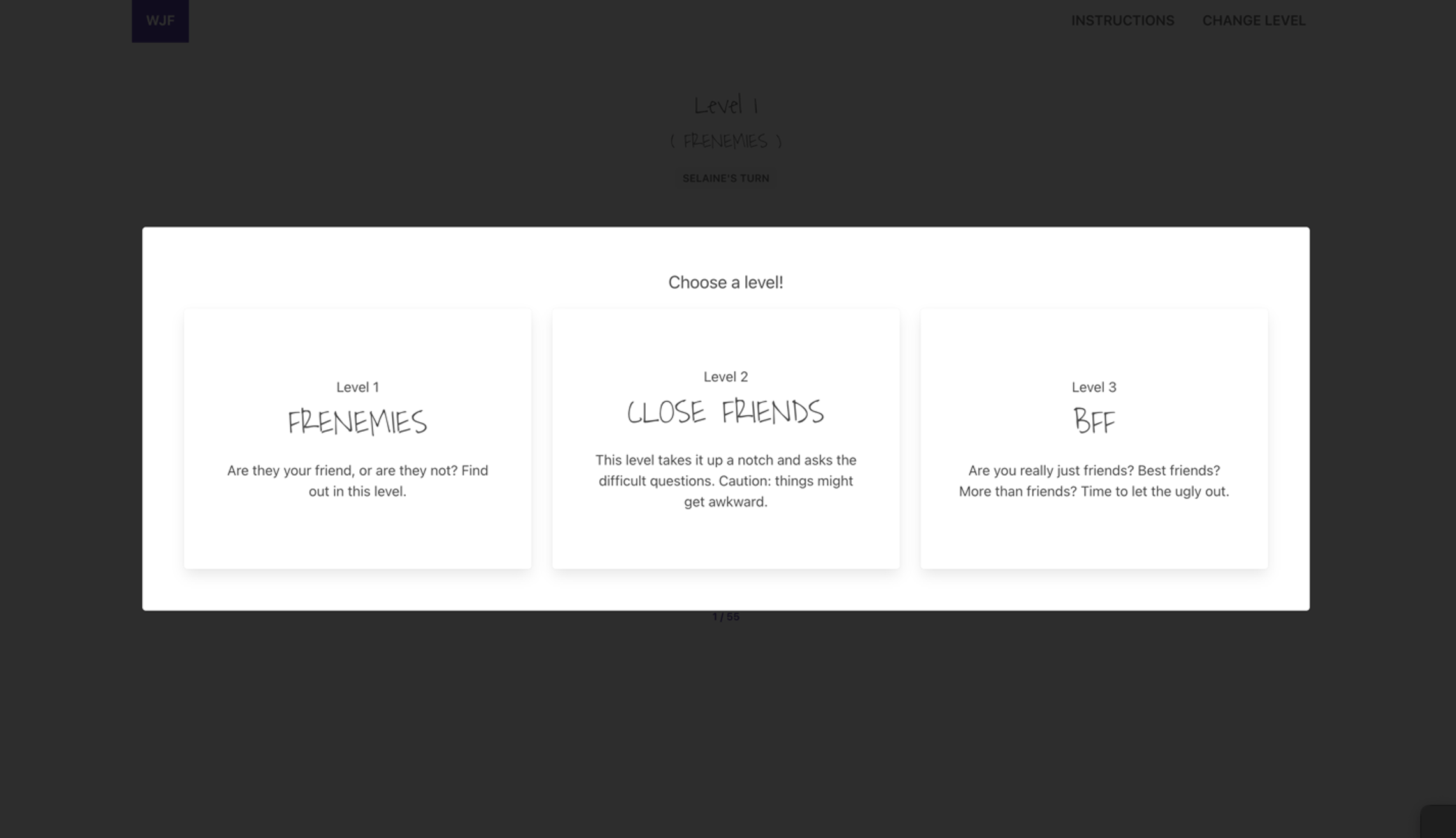
- Interesting Elements: The most interesting element is the differences in the types of questions based on the different packs. The card deck is selected by the users at the beginning of the game, but the different packs provided extremely different interactions. There is a huge difference between asking what someone’s favorite family memory is and asking what their favorite thing about you is, even if they’re in the same “intimacy” level
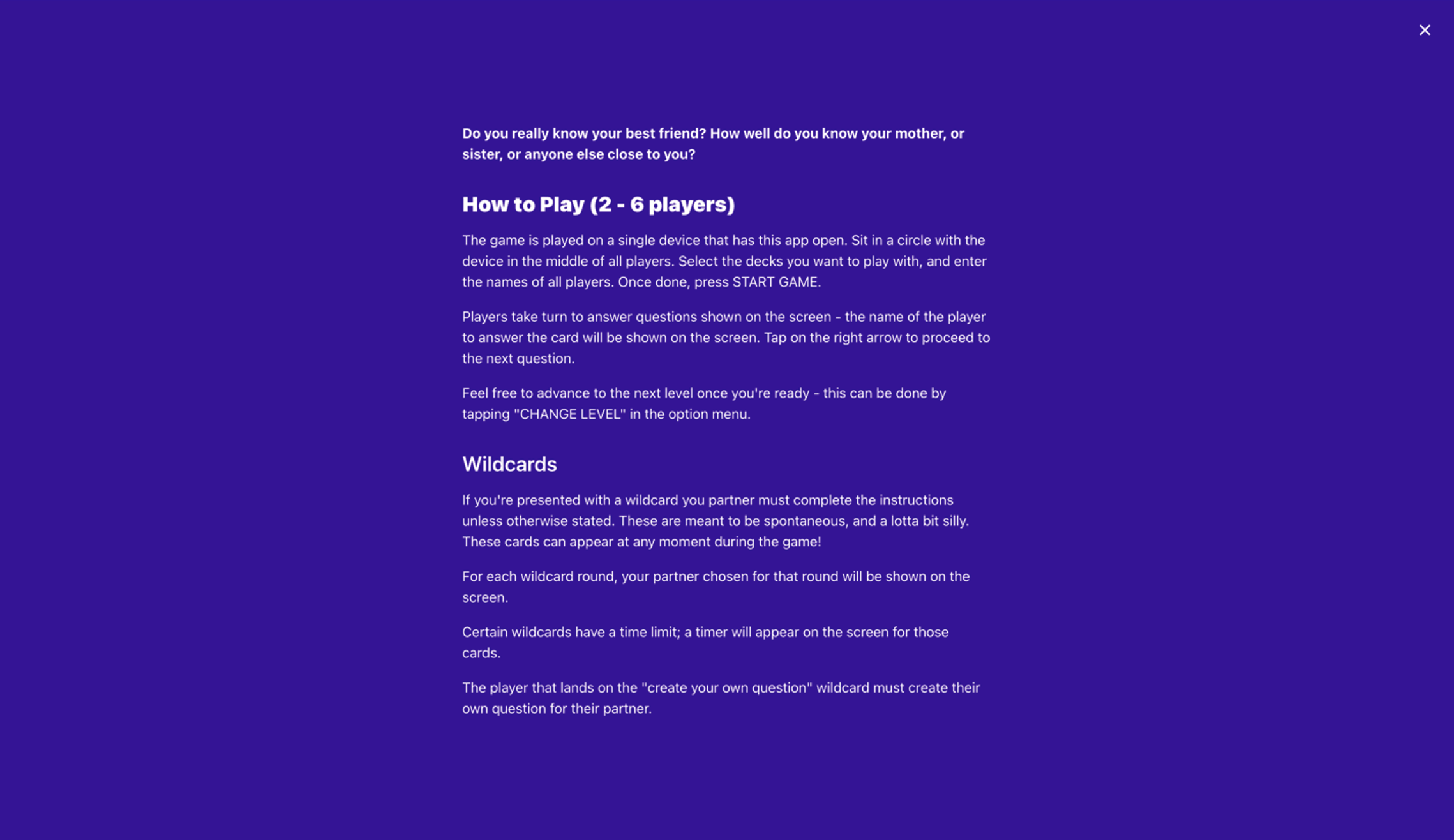
The type of fun that I thought aligned best with this game was fellowship, as the social intimacy that came from these questions most aligned with an expanding social framework. The elements of this game were good at randomizing the types of questions that were going to be asked, keeping the conversation fresh and interesting. The writers behind these prompts also knew how to make a question intriguing, while also prying at some of our inner thoughts without being invasive. The game worked because all of the questions, and the social cues and feelings that accompanied them, were thought out extremely well.
However, there are many different points where I thought the game could improve:
- There is no clear progression from level to level. Even if you complete an entire card deck, all 58 cards or however many of the “Frenemies” level for example, it does not automatically move up to the level above. This can make it difficult for a user to know if/when they should move up past this level of vulnerability.
- Some prompts required materials that we did not have on hand, and players were never given a heads up about preparing materials ahead of time. This was especially frustrating when it was a timed challenge.
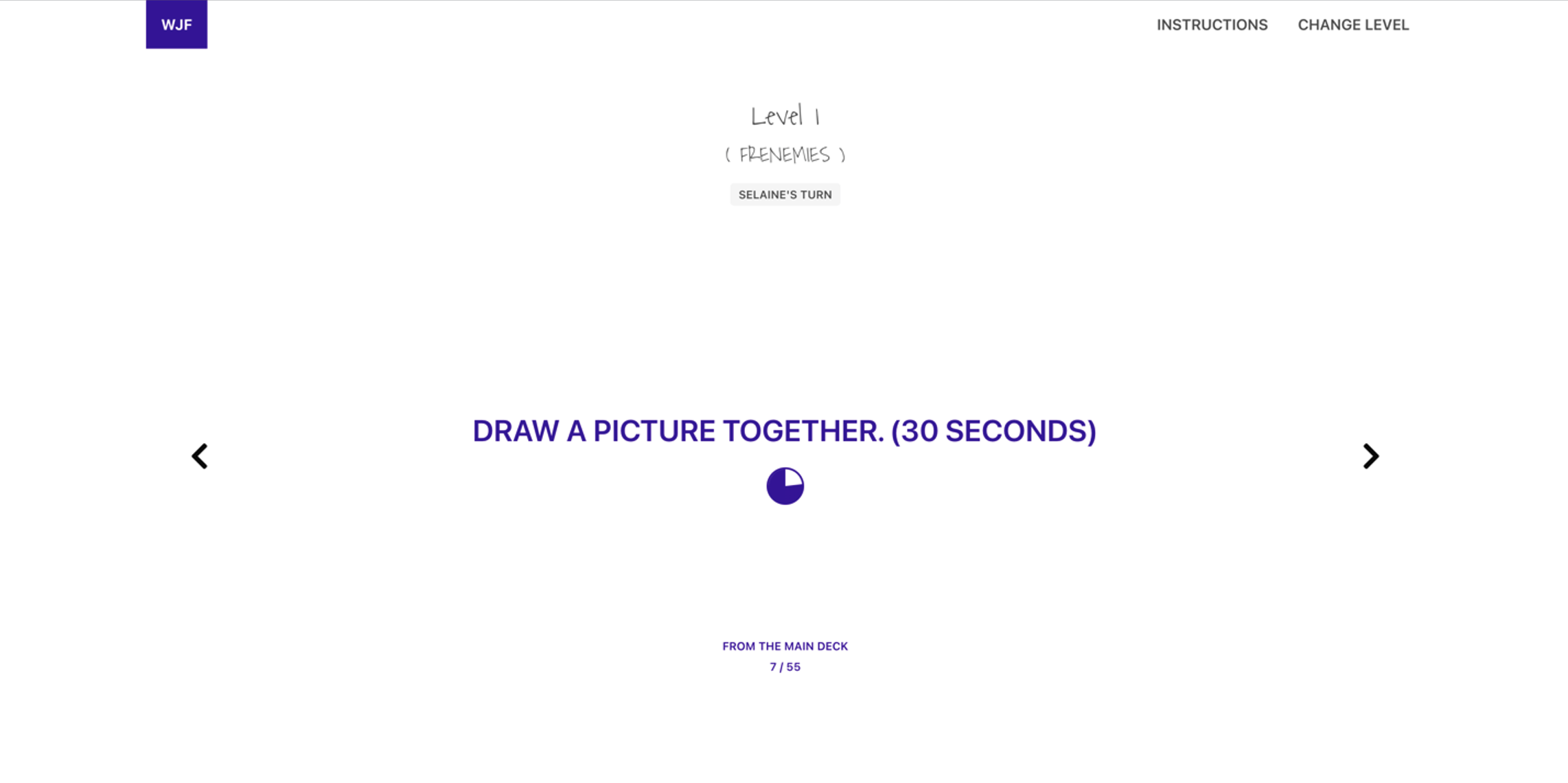
- Some of the questions weren’t really questions, and were honestly kind of vague. This made a turn seem pointless, as it didn’t bring the two people any closer together.
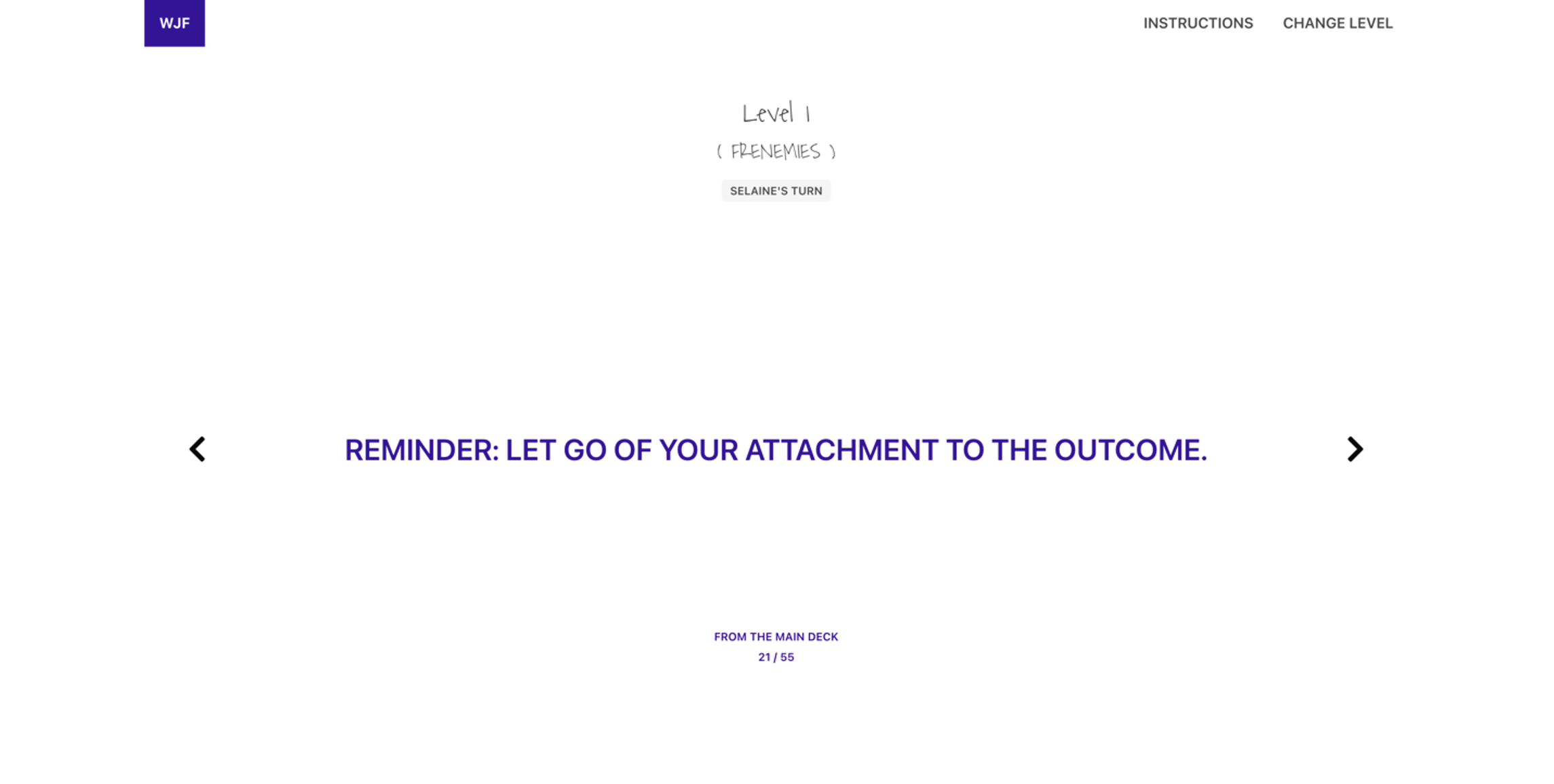
- Although I didn’t take a picture of the card, some of the questions pried a little too much into personal affairs (ex. a couple’s sex life), despite the fact that they were in one of the lower levels of intimacy. I felt that a question more serious should be in the upper levels of vulnerability, so it might be better to rethink where this might fit for certain players, and ensure player’s feel comfortable.
In comparison to other games in the genre, We’re Not Really Strangers was the blueprint, or the first of it’s kind, so this copied version of it seems very similar to that initial version and others. Although it doesn’t necessarily stand out, it is a board game / card game that is different from many of those we expect to see, as it relies less on conventional fun and more on sharing and being open. I, personally, had to be very vulnerable with my significant other and share details that we had never explicitly spoken about before. I wouldn’t feel comfortable playing this game with someone I had barely started to know or who had barely started dating, so I wonder how this game might fluctuate for others based on how much they normally share with others. Overall, this game pushed the limits of my boundaries and was an interesting game to analyze and try to understand.


